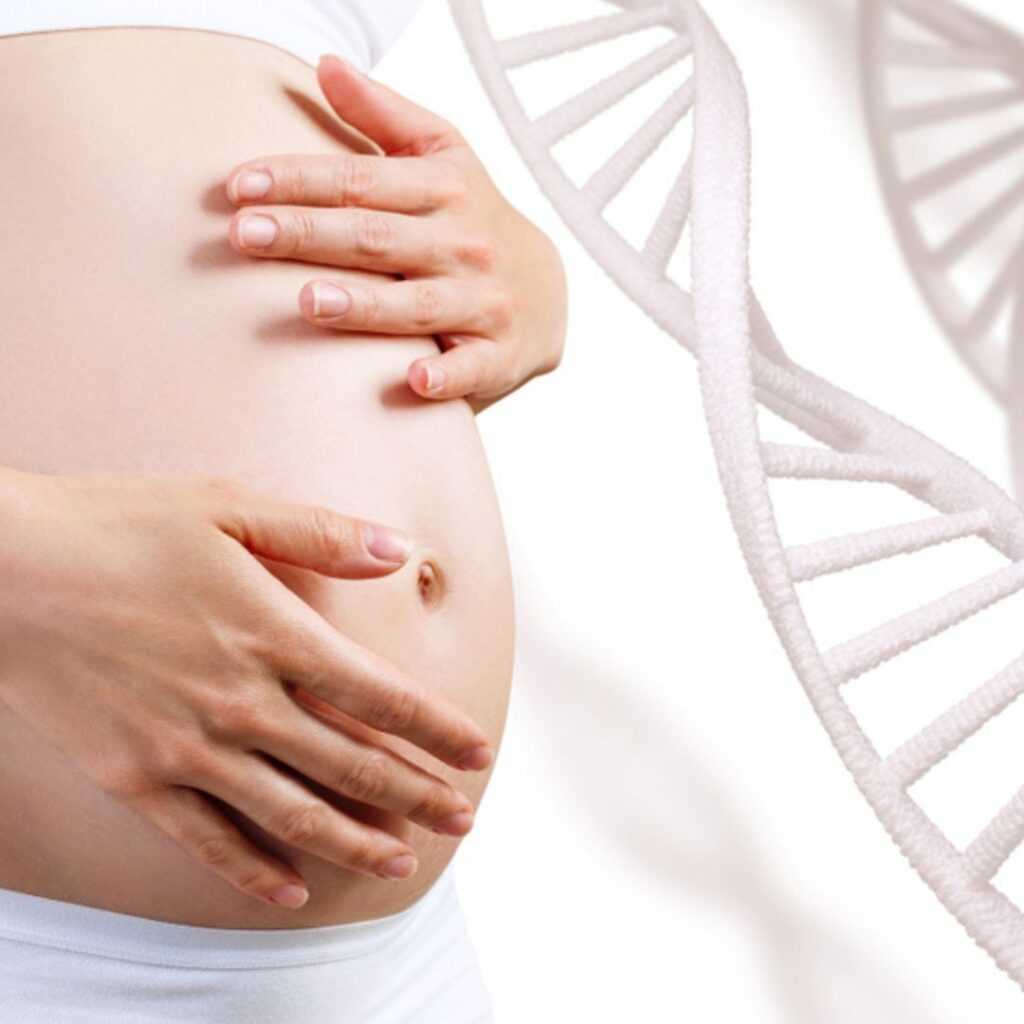
Does a Surrogate Mother Share DNA With the Baby?

Michael Chally
If you’re exploring family-building through surrogacy, it’s natural to wonder: Does a surrogate mother share DNA with the baby? Do surrogates pass on DNA to the child? Many intended parents ask these questions early on because understanding the genetic connection is essential to feeling confident about the process. The short answer is no — in gestational surrogacy, the most common type used today, the baby’s DNA comes entirely from the egg and sperm provider, not from the surrogate.
Still, the surrogate’s role is profound. She provides a safe, nurturing environment that allows the baby to grow and thrive before birth. At Northwest Surrogacy Center, we proudly support both intended parents and surrogates with clear information, compassion, and personalized care throughout every step of the journey.
Understanding the Basics of Surrogacy
Before diving into DNA and genetics, it helps to understand how surrogacy works. In gestational surrogacy — by far the most common approach today — embryos are created through a process called in vitro fertilization (IVF) using eggs and sperm from the intended parents or from donors. Then, the embryo is transferred to the surrogate’s uterus, where it attaches to the uterine lining and grows into a baby. When the surrogate delivers, the intended parents take their baby home, beginning the family they’ve been dreaming of.
Does the Baby Get Any DNA From the Surrogate?
We know that in birth via a surrogate, the egg and sperm come from someone else — not the surrogate. But does a surrogate mother share any DNA with the baby? In gestational surrogacy, the answer is no. The baby’s DNA comes entirely from the egg and sperm used to create the embryo. The surrogate does not contribute any genetic material, meaning she is not biologically related to the child she carries.
This distinction is key: whether the embryo is created with the intended mother’s egg and father’s sperm, or with donated eggs or sperm, the surrogate herself never shares any DNA with the baby. Her role is to provide a safe and healthy environment for the embryo to grow — not to shape the baby’s genetic makeup.
Do the Surrogate and Baby Share the Same Blood?
Another common question is whether a baby born via surrogate shares blood with the surrogate. The answer is no. During pregnancy, the woman’s placenta acts as a barrier between the surrogate and the baby. Oxygen and nutrients are delivered by the surrogate’s blood to the placenta. They pass through the placenta to nourish the baby’s growth, but the two blood supplies never mix.
This means the baby’s blood — and genetic makeup — remain entirely their own, coming only from the egg and sperm that created the embryo. The surrogate mother does not share DNA with the baby in any way. The surrogate’s role is to provide a secure, nourishing environment where the baby can develop until birth, then safely deliver them to their intended parents. She does not share DNA or blood with the child.
What (If Anything) Does the Baby Inherit From the Surrogate?
So, does a baby inherit anything from a surrogate mother? When it comes to genetics, the answer is no. The baby’s DNA is determined entirely by the egg and sperm used to create the embryo, and the surrogate mother does not pass on DNA to the child.
What the baby does receive is the benefit of nine months in the surrogate’s womb. Through the placenta, she provides oxygen, nutrients, and protection that allow the baby to grow strong and healthy. This safe environment supports the development of vital systems — from sturdy bones and a well-functioning nervous system to a resilient immune system and a healthy brain. In other words, the surrogate gives the baby everything they need for a thriving start in life, without contributing to their genetic identity.
In short, the baby inherits their genetic identity from their intended parents or a donor. They gain a healthy start in life from the surrogate mother.
What This Means for Intended Parents
A surrogate mother does not share DNA with the baby. In gestational surrogacy, the baby’s DNA comes entirely from the providers of the egg and sperm — the surrogate does not pass on DNA or contribute any genetic material. That clarity helps many intended parents feel more confident as they move forward.
But while the surrogate does not share her DNA, she does give something equally extraordinary: a safe, nurturing environment where your baby can grow strong and healthy. From steady nourishment to the protection of her womb, the surrogate makes it possible for the baby you’ve longed for to thrive before birth.
At Northwest Surrogacy Center, we honor the surrogates’ vital role, supporting them with care, respect, and an inclusive community throughout their journeys. Intended parents are welcome to be involved as much as they wish — attending appointments, sharing milestones, and building a genuine relationship with the woman helping bring their child into the world. In this way, the surrogate nurtures your baby, and we support her, so that together we can help you welcome your family’s newest member with care and confidence.
Ready to see if you qualify as a surrogate?
If you are a healthy, nonsmoking woman between the ages of 21 and 41 years old and have had previous healthy, full-term pregnancies, we would love to hear from you!
Ready to take the first step to parenthood?
Schedule a free consultation with our team to answer your questions and discuss the surrogacy process, including matching times and costs.
